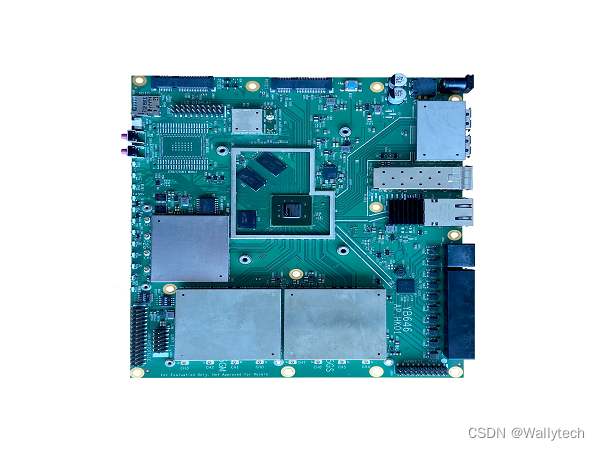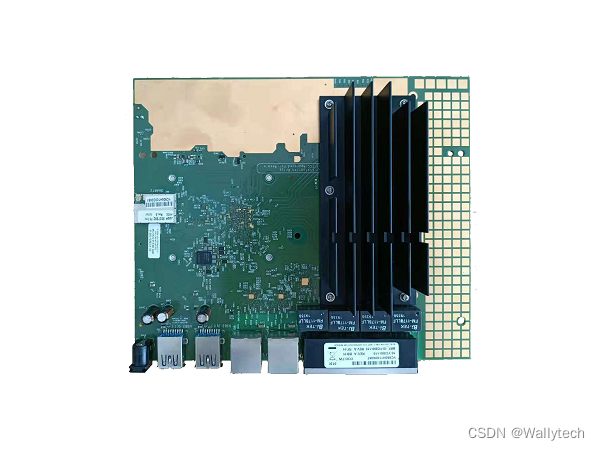IPQ8072A and IPQ8074A processors: performance comparison and innovation diff
Qualcomm's family of network processor chips continues to evolve, and the IPQ8072A and IPQ8074A represent its latest innovations. While maintaining the basic design, these two processors meet the higher performance needs of different network devices by introducing a series of upgrades and new features.
1. Performance improvement
IPQ8072A is an upgraded version of IPQ8072, focusing on providing more powerful performance. Sharing the same quad-core ARM Cortex-A53 CPU, however, the IPQ8072A makes significant improvements in the Wi-Fi area. The most notable is full support for 8x8 MU-MIMO technology. This means devices can communicate with multiple users simultaneously, significantly increasing overall network efficiency and data throughput.
In comparison, IPQ8074A is an upgraded version of IPQ8074, further pushing the limits of performance by improving CPU performance and providing higher-speed Wi-Fi support. New features it supports include OFDMA and 160MHz channels, providing users with more efficient data transmission and greater throughput.
2. Evolution of Wi-Fi technology
Both IPQ8072A and IPQ8074A are innovative in Wi-Fi technology, but the focus is slightly different. IPQ8072A fully supports 8x8 MU-MIMO technology and emphasizes multi-user multi-input and multi-output communication, making it perform even better in high-density user scenarios.
The IPQ8074A emphasizes larger bandwidth and higher-speed transmission by introducing support for higher-speed Wi-Fi and expansion of new technologies such as OFDMA, making it more suitable in enterprise network environments that need to process large amounts of high-speed data.
3. Differences in application scenarios
Due to differences in performance and functions, IPQ8072A and IPQ8074A also differ in application scenarios. IPQ8072A is suitable for devices that require efficient multi-user communication, such as high-density home networks or small business networks. The IPQ8074A is more suitable for handling large amounts of high-speed data transmission scenarios, such as enterprise-level network equipment, providing users with a more stable and efficient connection experience.
In summary, the difference between IPQ8072A and IPQ8074A is reflected in the differences in performance, Wi-Fi technology and application scenarios, providing manufacturers and users with more choices to meet the requirements of different network needs and application scenarios. With the introduction of these innovations, network equipment will be better able to adapt to the increasing connectivity and data transmission needs of the future.
DR8074A is developed based on IPQ8074A chip

Features
■ Qualcomm Atheros?IPQ8074A?AR Quad Core CPU
■ On-board 5GHz radio, up to 4804Mbps physical data rate 32MB NOR Flash, 256MB NAND Flash
■ On-board 2.4GHz radio, up to 1147Mbps physical data rate
■ Support 11ax TX Beamforming
■ Support 11ac/ax MU-MIMO DL and UL
■ Support OFDMA DL and UL
■ Tri-band support with 5G SBS (4x4/5GHz + 4x4/5GHz) + 4x4/2.4GHz
■ Supports Dynamic Frequency Selection (DFS)
DR8072A is developed based on IPQ8072A chip

Features
■ Qualcomm Atheros?IPQ8072A?AR Quad Core CPU
■ On-board 5GHz radio, up to 2475 Mbps physical data rate 8 MB NOR Flash, 256MB NAND Flash
■ On-board 2.4GHz radio, up to 1147Mbps physical data rate
■ Support 802.11ac TX Beamforming
■ Support 802.11ac/802.11ax?MU-MIMO DL and UL
■ Support OFDMA DL and UL
■ Tri-band support with 5G SBS (4x4/5GHz ) + 4x4/2.4GHz
■ Supports Dynamic Frequency Selection (DFS)
By:Wallystech
本文来自互联网用户投稿,该文观点仅代表作者本人,不代表本站立场。本站仅提供信息存储空间服务,不拥有所有权,不承担相关法律责任。 如若内容造成侵权/违法违规/事实不符,请联系我的编程经验分享网邮箱:veading@qq.com进行投诉反馈,一经查实,立即删除!